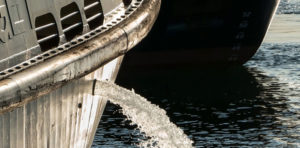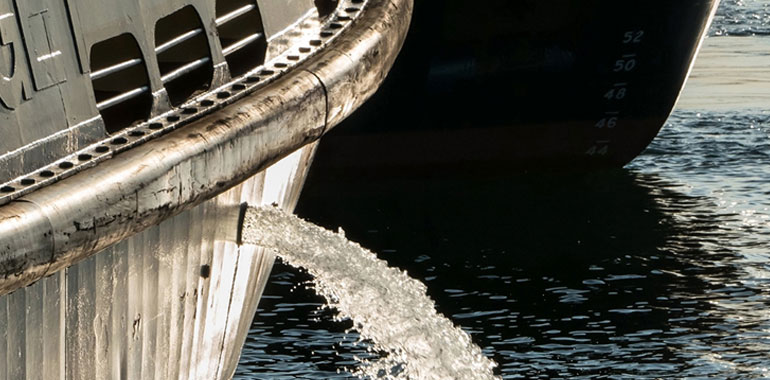
Crew aboard the Matson containership Mahimahi learned just after lunch on July 6 that a sailboat transiting from San Francisco to Hawaii was in trouble.
The trimaran Third Try failed to make a 24-hour report, and the Coast Guard requested that Mahimahi divert toward the sailboat’s last known position almost 190 nautical miles away. By dawn the next morning, all three sailors from Third Try were safe aboard the ship.
“It was perfectly uneventful,” Mahimahi Capt. Tim Kalke said of the rescue in a phone interview from his ship docked in Honolulu.
But the successful rescue was no foregone conclusion, particularly in that desolate corner of the Pacific Ocean about 825 miles northeast of Oahu.
Third Try left San Francisco on June 25 with two men and one woman on board who were hoping for a nonstop circumnavigation of the world. About five days later the boat encountered 10-foot seas and 25-knot winds that damaged the 50-foot vessel, causing it to slowly break apart. A friend on shore reported the possible distress at 0800 on July 6 when the crew failed to check in.
The Coast Guard contacted Mahimahi through the Automated Mutual-Assistance Vessel Rescue (AMVER) system. The 21 crew aboard learned about the situation at 1340 on July 6 as the ship headed for Hawaii loaded with containers.
The initial Coast Guard report was short on detail, Kalke recalled. The Matson crew didn’t know the condition of the sailboat, whether anyone on board was injured, and if they were, how badly. There also were concerns about possible COVID-19 exposure.
“Between 1340 and 1900, we were running through every worst-case scenario,” Kalke said. “Were there people in the water? Were there kids on board? Do they all have COVID? Did someone have a heart attack? How are they going to get on board?”
In the meantime, Third Try’s owner recognized the vessel’s situation was untenable. He activated the EPIRB, which gave authorities a clear idea of where the boat was. A Coast Guard HC-130 from Air Station Barbers Point on Oahu located the vessel and made contact with its crew.
The Coast Guard gave Mahimahi an update at 1900, letting the crew know the three people on the sailboat were in good physical condition and that Third Way could make 7 knots. That eased a lot of Kalke’s concerns.
“Once we found out we were dealing with a boat that could make way, that there were three healthy people, that they were able to come along the port side in perfect weather, everyone breathed easier,” he said.
Mahimahi’s crew planned to recover the sailors from a pilot ladder on the port side of the 859-foot ship. The rescue strategy called for using the ship to make a lee to allow the sailboat to come alongside. From there the sailors could climb up the ladder onto the ship.
As Mahimahi closed on Third Try’s position, mariners on both vessels confirmed the plan over radio. By 0337 on July 7, all three sailors had climbed aboard the boxship and Third Try was left adrift. Given its compromised condition, Kalke said towing it hundreds of miles at 21 knots seemed imprudent. The sailors disembarked a couple of days later when Mahimahi reached Honolulu Harbor.
“One of our greatest challenges out here in the Pacific is distance,” said Lt. Diane French, command duty officer at the Coast Guard’s Joint Rescue Coordination Center in Honolulu. “First responders are often days away and we regularly rely on merchant vessel crews like the Mahimahi’s to assist with search and rescue cases. We are always grateful for their help.”
Kalke, a three-year Matson captain with 22 years at sea, offered high praise for his crew during the “all hands” event. “Every one of the crew was involved and carried out their duties professionally,” he said.
Quartermaster Allen “Gonzo” Gonzalez, 69, earned special recognition. “Gonzo did an excellent job on the helm maneuvering the ship during the rescue,” Kalke said, adding that the crewman has been sailing on U.S. merchant ships since 1969 — the same year Kalke was born.
Third Try’s owner contacted Kalke a few weeks after the rescue. The sailboat eventually arrived on Oahu, albeit a little later than planned. A fisherman found the vessel drifting 30 miles north of the rugged North Shore and towed it to the island on Aug. 6.

